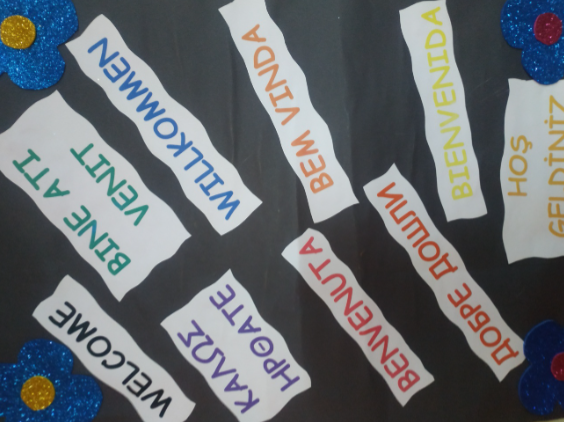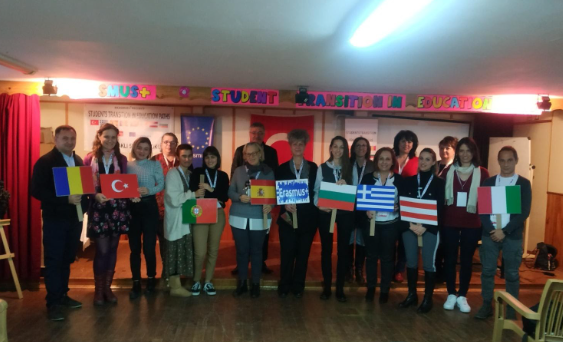

ERASMUS+ 2019-1- EL01-KA201- 062484
Our project has the important goal to facilitate students’ transition from kindergartens to primary schools of the eight partner countries. Since this particular transition is considered the most critical of all transitions in a child’s life, all partners believe that it should be dealt with the appropriate significance and seriousness. It is a common view among all partnership members that a successful transition to primary schools guarantees academic success, personal and social development and eventually future prosperity for all pupils. It is the first time that this topic has preoccupied a partnership in the past few years.
The main aim of this consortium to collect transition practises from various countries, compare them and select the best practices to disseminate in every country. This aim will be achieved if we involve pre-primary and primary schools of both typical and special needs education and promote cooperation between kindergartens and primary schools via common actions, events and activities, organize and run various interesting and motivating actions pupils as well as engage possible participants in our actions, such as local stakeholders, psychologists, parents’ associations, school counsellors and teachers.
The project will be carried out via six learning/teaching/training activities and three transnational project meetings in the eight partner countries. The participants in these activities will be teachers/educators who work in these organizations and are interested in the issue of transition. The participants will be selected according to their motivation, interest in the topic and free will, considering at the same time their language and presentation skills.
16 teachers/educators will take part in five of the six LTT activities and 14 teachers/educators in the last LTT activity, whereas two people from each organization/school will participate in the transnational project meetings.
During training activities teachers will take part in tasks that will give them the opportunity toexperience teaching in other countries, share and exchange their ideas with European colleagues and be informed about the education systems in partner- countries. They will also improve their ICT and English language skills and develop an understanding and tolerance towards their foreign colleagues’ culture.
Students will be involved in interesting and original activities, learn how to adjust to a new educational environment and help other pupils adjust to a new educational environment, establish a positive start in the new school, and raise their interest to other countries, cultures, customs and traditions.
The project will have as a result a plurilinguistic book on transition practices, a website and a Facebook page of the project, an e-Twinning project, and questionnaires to investigate transition practices among the partner countries. Interviews with teachers from all partner countries will be organised as well as a booklet about children’s skills and a plurilingual e-book with fairy tales from all partner countries.
The impact of the implementation of the project is that pupils will be involved in various activities along with other students and teachers, take part in transition practices from other countries and as a personal development and a future academic success.
At the same time teachers will gain new experience by observing other teachers’ methods and share their knowledge by teaching their methods to other teachers, improve their linguistic and digital skills and learn a lot about other cultures.
The organizations involved will have the opportunity to develop links with European schools, understand diversity of European cultures & languages, develop through international collaboration and be willing to open up to & appreciate new ideas coming from other European countries. Finally parents will be guided in how to actively help their children adapt more smoothly in primary schools and local authorities will enhance their cultural competence and widen their horizons and develop more tolerance and understanding for other cultures.
In the long run, the project’s aim to develop, exchange and share new teaching methods which will facilitate the transition of pupils from kindergartens to primary schools will promote the development of pupils’ personality in a holistic way. The quality of education will be improved, equal opportunities for all students will be provided and the on-going challenges faced by teachers, students, schools and European organizations at national and European level will be addressed.
Our Partners
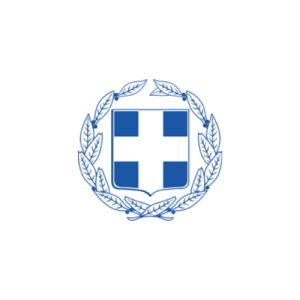
Directoraty of Primary Education of Thesproatia,
The Directorate of Primary Education represents the Greek Ministry of Education in Thesprotia and it supervises 66 schools, both pre-primary and primary, two of which are exclusively for children with special needs
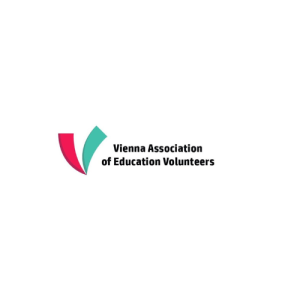
Vienna Association of Education Volunteers,
Vienna Association of Education Volunteers, Austria

Vienna Association of Educational Volunteers (V.A.E.V.) is a non-profit making, non-political organisation, which aims at empowering people, promoting peace and tolerance among young people through assisting people in acquiring knowledge and developing their skills and competences
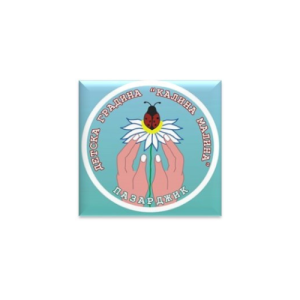
Kalina Malina,
Kindergarten “Kalina Malina” is a municipal kindergarten opened in 1977 and is the largest in the Pazardjik region. There are 10 garden groups and 2 cluster groups. At this point Kalina Malina takes care of 380 children. The staff is 51 people, including 20 teachers, 1 music teacher, 5 nurses, 4 administrative staff and 20 support staff and 1 director
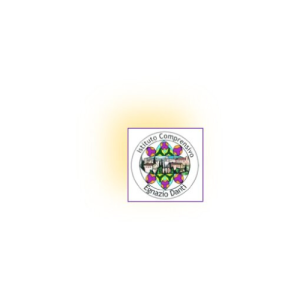
Istituto Comprensivo “Egnazio Danti”
The school is located in Alatri, a rural area nearby the capital city (Rome). Is a comprehensive school compounded of two kindergartens, two primary schools and a secondary school level, it houses a school population of 1,203 pupils.
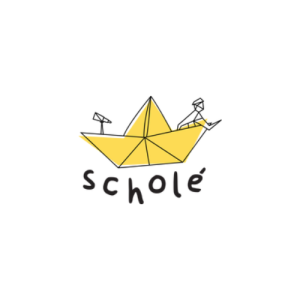
Projecto Schole LDA
Scholé is a private school offering learning activities to children and youngsters, from pre-school to high-school level. Scholé is not a traditional school. It’s defined as a learning community based on the values of happiness, curiosity, autonomy, initiative and empathy
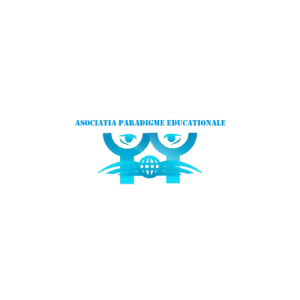
Asociatia Paradigme Educationale
APE was established with the aim of improving the quality and performance of the education provided, to gain an European dimension in order to share the best practices in the field of education and especially ICT integration in teaching activities (management, staff competences, new teaching methods and tools, language competences, organisation of teaching and learning) with others organizations
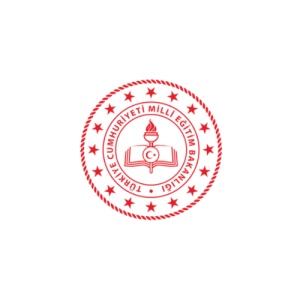
Bairakli 50. Yil Ilkokulu
Bairakli 50. Yil Illkokulu is a public, primary school that has 800 students and 45 teachers. It is located in a disadvantaged area. Among the students there are 94 students from Syria and 8 mentally and physically disabled students in special classes
03/07/2020 Check our project website for any information that you find interesting about Students Transition path way, from kindergarten to primary school.
03/05/2020 Knowing more about the Spanish educational system. Data and numbers. 2019-2020 school year.
Facts and Figures offers the data estimated to the beginning of the school year on the main variables of Spanish education system: students enrolled, schools and public expenditure in education. It also collects other basic data already consolidated of previous school years on the education in Spain, his international comparison and his temporary evolution. This publication does not take university education into account, except in sections
concerning the education system as a whole. The figures here presented are the result of a statistical cooperation framework
established with the autonomous communities, through the Education Sector Conference.
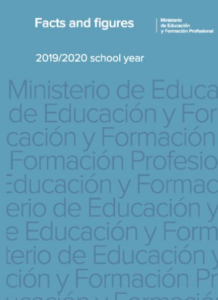
03/04/2020 All mobilities and meetings of our STEP project have been cancelled by COVID 19. The consortium continues to work together on the new calendar of activities.
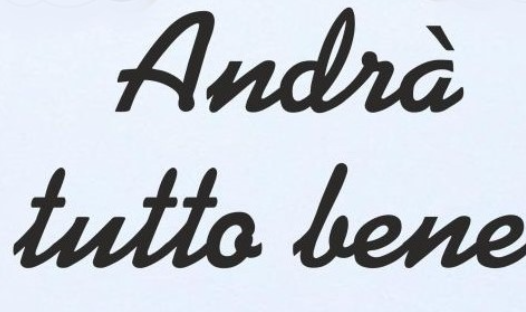
03/03/2020 We already have the winning logo and it will represent the Student Transition in Education Paths Project (S.T.E.P.)
It is the one designed by our colleagues at the “Egnazio Danti” Comprehensive Institute, Alatry, Italy, and the one that has obtained the highest number of votes in open voting on the internet.
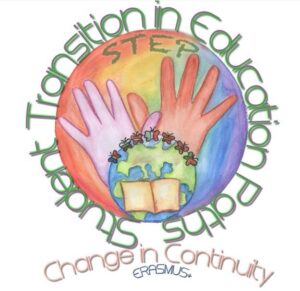
20/02/2020 We have held the first Training of the Student Transition in Education Paths Project (S.T.E.P.) in Matosinhos, Portugal, from February 10 to 14, 2020
In it we have learned from the transitional practices of primary children in Projeto Schloé, in Matosinhos, a pioneering school in digital methodology and gamification. We have reviewed the dissemination activities in order to transfer what we have learned and reflected on in our areas of influence and we have controlled the development of the project management. A good meeting to continue working.
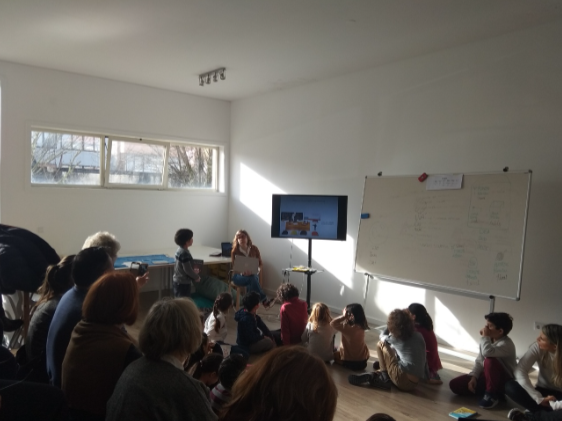
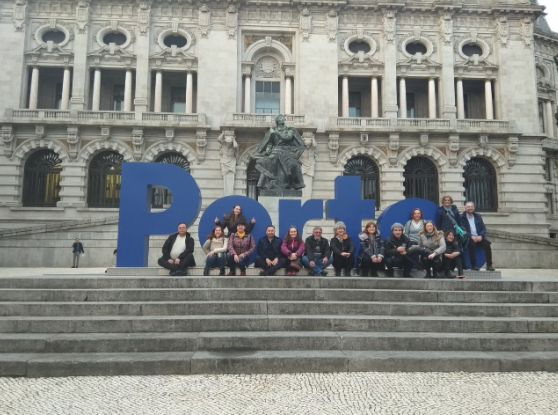
20/01/2020 All the partners of the S.T.E.P. project have presented their proposals for the election of the Logo that will be part of the visual identity of the project.
These are the logo designs proposed by the eight participating countries. From now on, an online voting process has started in order to choose the winner.
May the best one win!
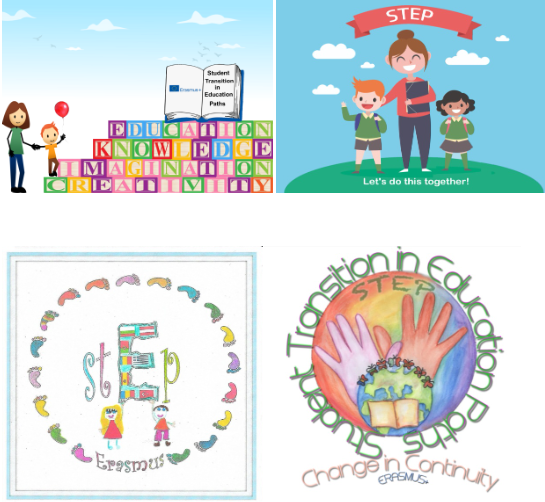
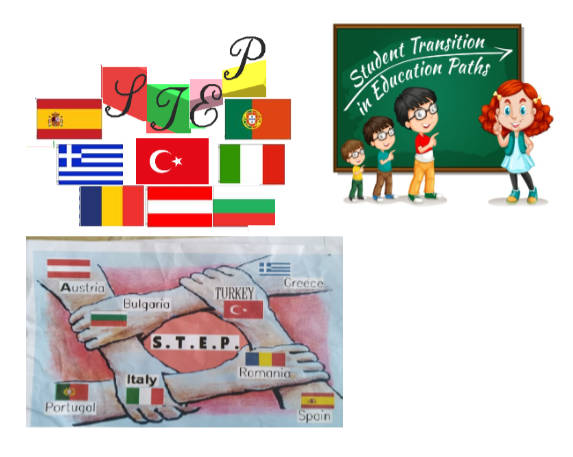
20/12/2019 We have celebrated the KICK OFF MEETING on December 4, 5 and 6, 2019 in Izmir, (Turkey).
We have reviewed the objective of the program, which includes teachers and institutions from Greece, Austria, Bulgaria, Italy, Spain, Portugal, Romania, and Turkey, and all the steps of it. We have planned how the exchange of good teaching practices and the creation of open access educational material will be developed, which will be addressed to all primary school teachers and students. We have also been able to check the quality of the partnership and congratulate ourselves on the meeting.
Representatives of all the partners that make up the consortium attended the meeting, which are:
Coordinator: The Directorate of Primary Education of Thesprotia, Greece
Partners:
Bayrakli 50.Yil Ilkokulu, Izmir, Turkey
Istituto comprensivo “Egnazio Danti”, Alatry, Italy
Vienna association of education volunteers, Austria
Kindergarten “Kalina Malina”, Pazardzhik, Bulgaria
Projeto Scholé, Matosinhos, Portugal
Asociatia paradigma educationale, Bucharest, Romania
Asociación para la Innovación Formación y Empleo para el Desarrollo Sostenible, AIFED, Granada, Spain
Thanks to our Turkish partners for the great organization.
